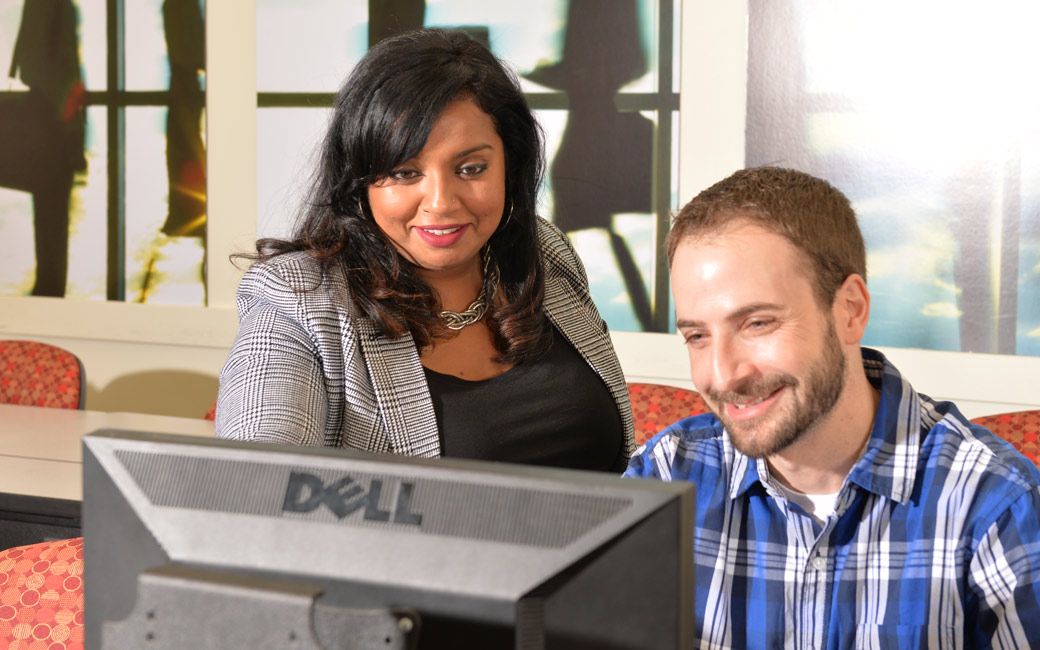Stella Tomasi
Professor, Department of Business Analytics & Technology Management

Stella Tomasi is willing to try lots of teaching tools, including a mosh pit. That’s what she calls her intensive hands-on technology project in which, “I challenge students to think about various types of products they currently use and develop a new product incorporating technology in an innovative way,” Tomasi explains, citing three recent mosh pit-inspired projects: a voice-controlled television, a microwave that heats and cools foods, and a bed that helps sleepers wake up each morning.
Her previous work experience with Accenture, one of the nation’s leading consulting firms, and two major pharmaceutical companies has earned her credibility with students. “I enjoyed working with processes within various firms, so I share a lot of work examples on process improvement,” says Tomasi. “Students know my background, and they like hearing my stories.
“I see myself as a teacher and an adviser, not just another professor. I like the connection with students. They often come to me for advice and for references,” relates Tomasi, who teaches undergraduate and graduate courses in e-business, information technology, and process management, among others.
At Towson, Tomasi is the faculty adviser for the e-Business Association, finding guest speakers and organizing job fairs. “I believe learning does not only occur in the classroom or through a book. It is important to incorporate learning through different ways,” she says. Sometimes talking to alumni working in a particular field helps students understand the importance of class projects.
“ I like the connection with students. They often come to me for advice and for references. ”
Much of her own research has focused on use of the Internet, specifically how users locate and use information and search engine optimization. One project looked at small businesses in Maryland and how they could improve their ranking on Google listings. Another study tracked how users prefer to view results obtained from search engines. Tomasi notes: “The Internet has a lot of available data when searching for information and it’s all about how to process large amounts of data to complete a task quickly. How does your mind accept cues and categories that are provided on the results page? How do you process and take time to look at the information? Are you able to find the relevant answer quickly?”